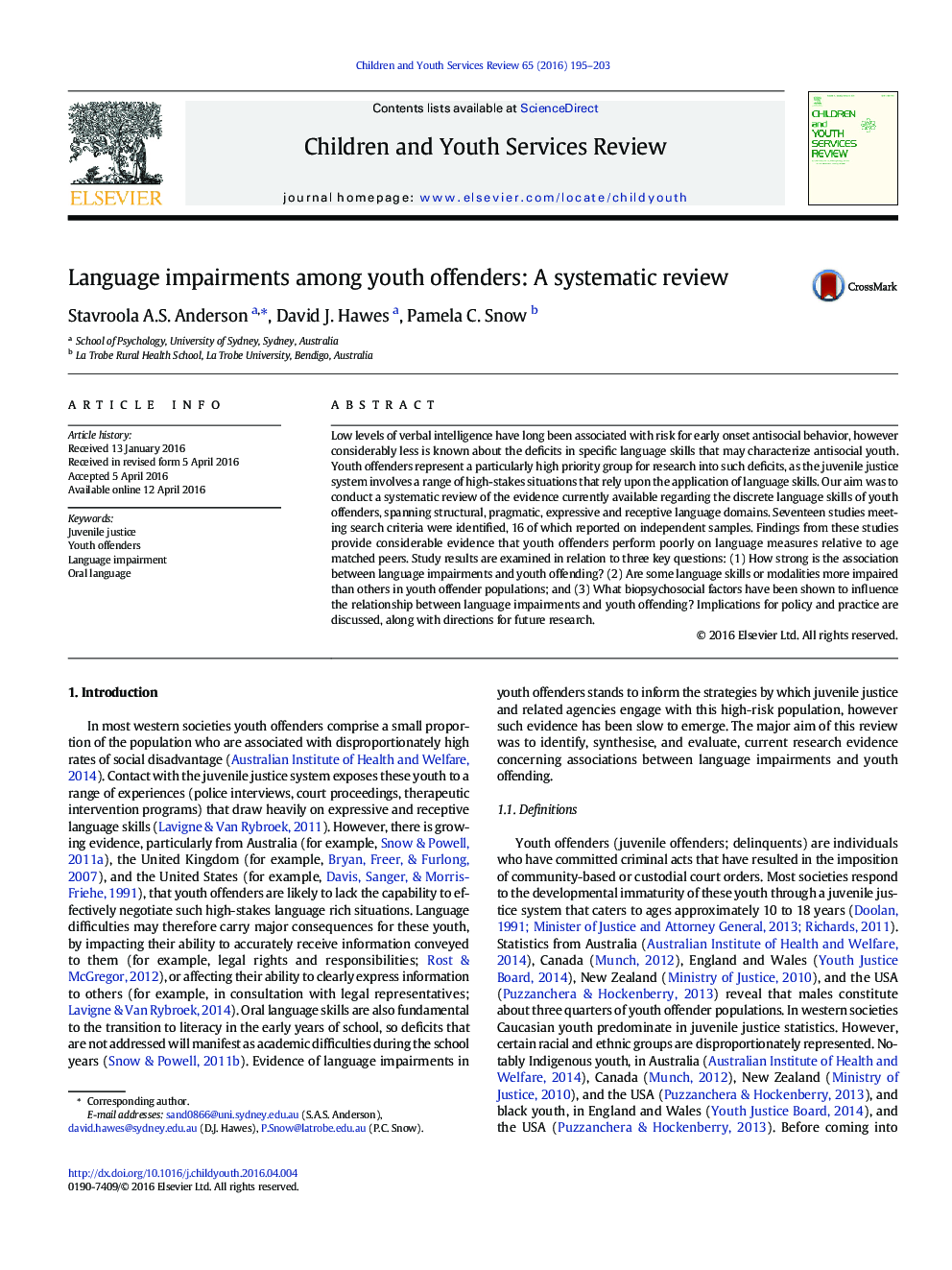| Article ID | Journal | Published Year | Pages | File Type |
|---|---|---|---|---|
| 345822 | Children and Youth Services Review | 2016 | 9 Pages |
•Reports a systematic review of research into language impairment in youth offenders•17 studies describing 16 separate samples were located.•Youth offenders have significantly poorer language skills than their peers (d = .28—1.72).•Mechanisms of associations between language skills and offending require investigation.
Low levels of verbal intelligence have long been associated with risk for early onset antisocial behavior, however considerably less is known about the deficits in specific language skills that may characterize antisocial youth. Youth offenders represent a particularly high priority group for research into such deficits, as the juvenile justice system involves a range of high-stakes situations that rely upon the application of language skills. Our aim was to conduct a systematic review of the evidence currently available regarding the discrete language skills of youth offenders, spanning structural, pragmatic, expressive and receptive language domains. Seventeen studies meeting search criteria were identified, 16 of which reported on independent samples. Findings from these studies provide considerable evidence that youth offenders perform poorly on language measures relative to age matched peers. Study results are examined in relation to three key questions: (1) How strong is the association between language impairments and youth offending? (2) Are some language skills or modalities more impaired than others in youth offender populations; and (3) What biopsychosocial factors have been shown to influence the relationship between language impairments and youth offending? Implications for policy and practice are discussed, along with directions for future research.
